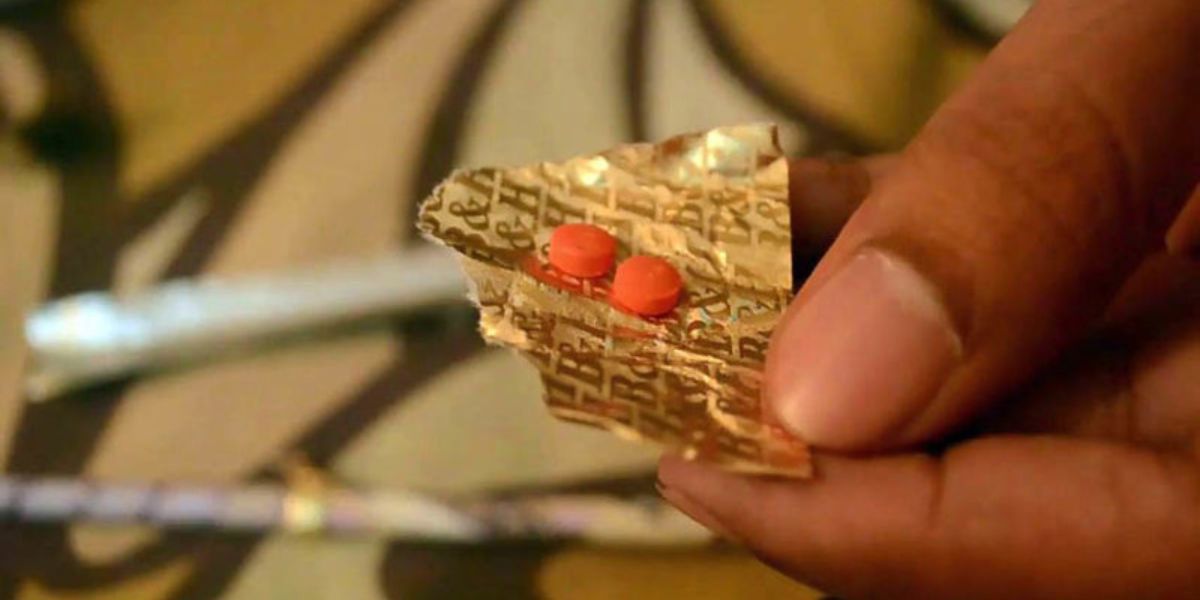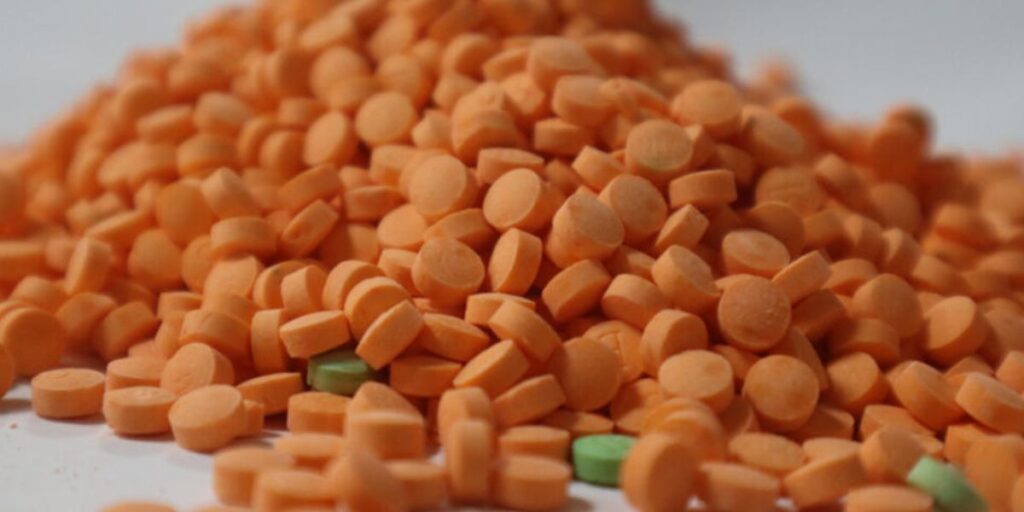What Is Yaba?


Yaba, a drug whose name translates to “crazy medicine” in Thai, is a powerful combination of methamphetamine and caffeine. This potent mix is well-known, especially in Southeast Asia. It is highly addictive and can cause serious side effects.
People commonly find yaba in brightly colored pills, which can be orange, green, or red. These pills often bear logos, making them particularly appealing to younger users and contributing to the drug’s widespread abuse.
Originating in Southeast Asia, yaba quickly spread across the region and beyond, becoming a significant public health concern. The drug is known for its ability to induce intense euphoria and increased energy, but it also comes with a host of dangerous physical and psychological side effects.
Yaba’s potent effects have led to its classification as a Schedule II controlled substance in many countries, including the United States, highlighting its high potential for abuse and dependence.
Yaba is made illegally, which means it can have unknown or dangerous ingredients. Additives in yaba raise risks because the production is not regulated. This leads to uneven dosages and harmful impurities. These factors make the drug even more dangerous.
Yaba has also been called “Nazi speed” because of its origins during World War II when methamphetamine was used to keep soldiers awake and energized. Today, however, its illegal production and distribution have turned it into a street drug with devastating consequences for users.
What Is Yaba?
Yaba is a combination of meth, a potent central nervous system stimulant, and caffeine. The drug originated in Southeast Asia and quickly became popular because of its stimulating effects. The term “yaba” literally means “crazy medicine” in Thai, reflecting the extreme and often unpredictable behavior resulting from its use.
Yaba is typically sold in pill form. Users may swallow the pills, crush and snort them, or heat them on foil and inhale the vapors—a method known as “chasing the dragon.” The drug is also sometimes dissolved in water and injected, though this method is less common. The pills are often bright in color, usually orange or green, making them easily recognizable on the street.
Yaba is often referred to as a “combination of methamphetamines” because it is frequently mixed with other substances during illegal manufacturing. This makes the drug even more dangerous, as users may not be aware of the exact chemicals they are ingesting. This unpredictability further contributes to its reputation as a highly addictive drug of abuse.

Is Yaba Dangerous?
Yes, yaba is extremely dangerous. Its main ingredient is meth, a potent stimulant that affects the central nervous system which can cause a range of severe health issues.
Yaba significantly increases heart rate and blood pressure, which can result in heart attack, stroke, and other cardiovascular problems. The drug’s euphoric effects make it highly addictive, which makes it easy for people to become addicted and face severe difficulties when they try to quit.
While some users may experience heightened energy and alertness, others might become paranoid, aggressive, or delusional. This erratic behavior contributes to the drug’s dangerous reputation, making it a significant threat not only to users but also to those around them.
The method of use can also exacerbate its dangers. For example, users who engage in “crushing the tablets” to snort or inject yaba increase the risk of immediate and severe health issues, including overdose. Illegal Yaba production leads to uneven dosages and harmful additives. This increases its danger and makes it riskier for users.
Side Effects of Yaba
The side effects of yaba use are numerous and can be quite severe, even after short-term use, including:
- Rapid heart rate
- Increased blood pressure
- Hyperthermia
- Insomnia
- Anxiety
- Paranoia
- Aggression
- Hallucinations
- Depression
In addition to these immediate effects, users might also experience a range of issues associated with long-term drug use. Chronic abuse of yaba can lead to severe dental problems, often referred to as “meth mouth,” where teeth decay and gums recede. This is partly because of the drug’s reduction in saliva production, which normally helps protect the teeth from decay.
Long-Term Health Effects of Using Yaba
Prolonged use of yaba leads to significant long-term health consequences, affecting both the body and the mind, including:
- Chronic cardiovascular damage
- Respiratory issues
- Neurological impairment
- Persistent psychosis
- Chronic depression and anxiety
- Severe addiction
Long-term use can also lead to “yaba disease,” a condition characterized by extreme physical deterioration, including severe dental issues and significant weight loss.
Yaba also has the potential to cause severe psychological disorders over time. Using drugs for a long time can raise the chance of getting a lasting mental illness. This makes it hard for people to tell what is real and what is not. The brain’s structural changes worsen this mental decline because of meth use, which can result in long-term cognitive issues.
Yaba Withdrawal Symptoms
Withdrawing from Yaba is difficult because of the intense symptoms, which can be harsh on both the body and the mind.
Common symptoms of yaba withdrawal include:
- Intense cravings
- Extreme fatigue
- Depression
- Anxiety
- Irritability
- Sleep disturbances
The seriousness of these symptoms often depends on the duration and amount of yaba used. This makes it hard for users to stop without help from professionals.
One of the most debilitating aspects of yaba withdrawal is extreme psychological distress, including severe depression and anxiety. This often leads to what is referred to as a “crash,” where the user experiences a profound and overwhelming sense of hopelessness and exhaustion.
These withdrawal symptoms are intense and can push users to return to the drug to feel better. This makes recovery without help very hard.

Methamphetamine Addiction Treatment at White Oak Recovery Center
For people struggling with addiction to yaba, professional treatment is often the best path to recovery. White Oak Recovery Center (WORC) provides evidence-based treatment programs for meth addiction. WORC helps people overcome their addiction and take back control of their lives.
At WORC, the treatment process begins with a comprehensive assessment of the resident’s physical and psychological health. This allows the treatment team to create a personalized plan addressing the patient’s needs.
WORC helps residents quit yaba and gives them the tools and support to stay sober for a long time. This includes education on coping strategies, relapse prevention techniques, and ongoing support through aftercare programs.
At White Oak Recovery Center, our dedicated team understands the challenges of meth addiction. It works closely with each patient to ensure they receive the care and support necessary for lasting recovery.
Contact WORC today. Our compassionate treatment specialists are eager to help you get the treatment you need.

Am I covered for addiction treatment?
Your insurance may cover treatment. Call now for an entirely free and confidential assessment. Recovery starts with a phone call.

- “Yaba Fast Facts.” National Drug Intelligence Center, Jan. 2006.
- Pressly, Linda, “Yaba: The Cheap Synthetic Drug Convulsing a Nation.” BBC, Apr. 2019.
- “Yaba, the ‘Crazy Medicine’ of East Asia.” United Nations: Office on Drugs and Crime, May 2008.
Medical Disclaimer:







